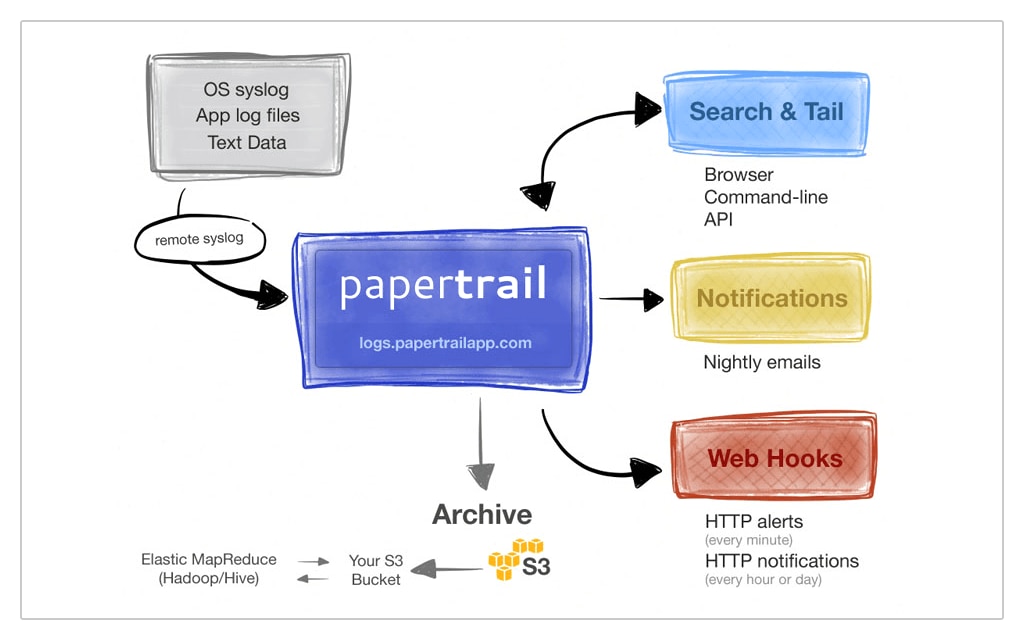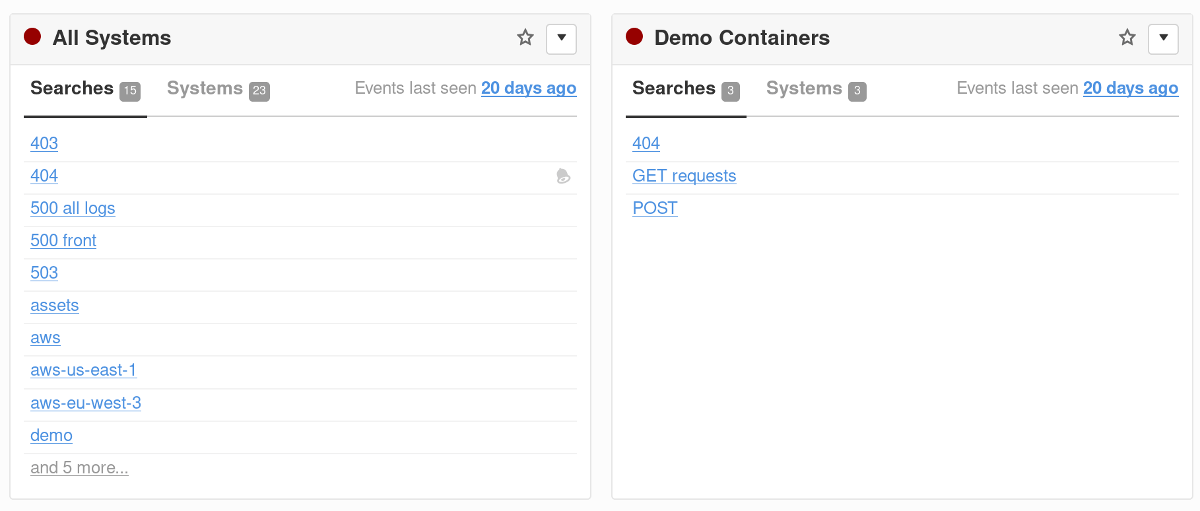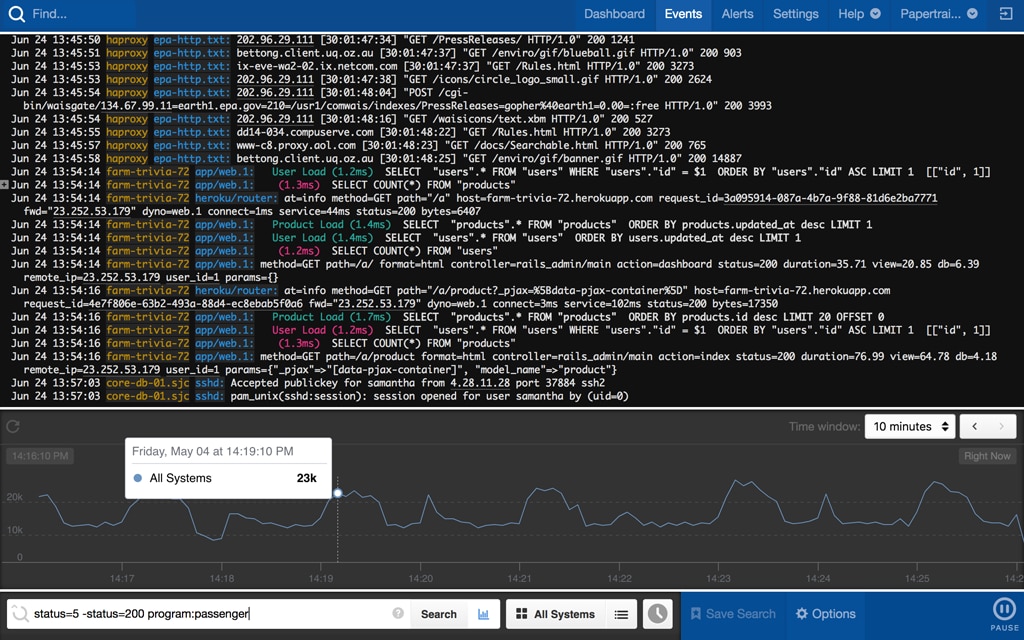Reduce troubleshooting time with simple Linux log management
-
Centralize all your logs
Keep all your logs in one place and pool infrastructure-wide log data. -
Take control of log files
Tame Linux logs with live tail and advanced searching and filtering. -
Speed up analysis
Reduce time to troubleshoot problems and errors using live tail and context-aware navigation.

Here's How Papertrail Helps

Aggregate all your Linux logs
With all your Linux logs stored in a single location, you can build an infrastructure-wide view of your log data and analyze the history of all your servers at once. Use the SolarWinds® Papertrail™ interface to search through log messages from every service and application instead of digging around in /var/log/. Send Linux services logs directly to Papertrail by updating the system’s syslog daemon config file, and forward logs from applications and daemon that don’t support syslog with the Papertrail tiny remote_syslog2 daemon. Send messages over UDP or TCP with TLS encryption for improved security and protection.
Sign up for a free plan
Trim Linux log files with searching and filtering
Stepping through huge Linux log files can make investigations painfully slow. With the Papertrail advanced searching and filtering, you can use powerful regular expressions to comb through all your logs simultaneously and focus on just the messages you need. Searches can be applied to both existing and incoming log messages, so you never need to choose between the two. Use exclusion searches to filter out log data you don’t want to see. Filter logs by date, sender, IP address, and more. Save important search queries for later use and share battled-tested queries among your team to improve productivity.
Sign up for a free plan
Quickly analyze and troubleshoot issues
Live tail lets you view log messages immediately as they’re received by Papertrail. The pause, search, and infinite scroll features let you effortlessly move around your log data when troubleshooting. Thanks to clickable log elements such as IP addresses, dates, and UUIDs, you can navigate through huge log files to find related messages. The Papertrail context-aware event viewer helps you find all messages involved in specific transactions and enables you to map out the end-to-end history of events. This makes it ideal for tracing HTTP requests by user ID or IP address, or digging into kernel errors messages coming in a particular system.
Sign up for a free plan- Linux Log Analyzer
- Aggregate, monitor, and analyze all your logs in one place. Get the most out of your Linux logs with cloud-based log management software. Exploring further? You should check out the SolarWinds ubuntu system monitor log analyzer